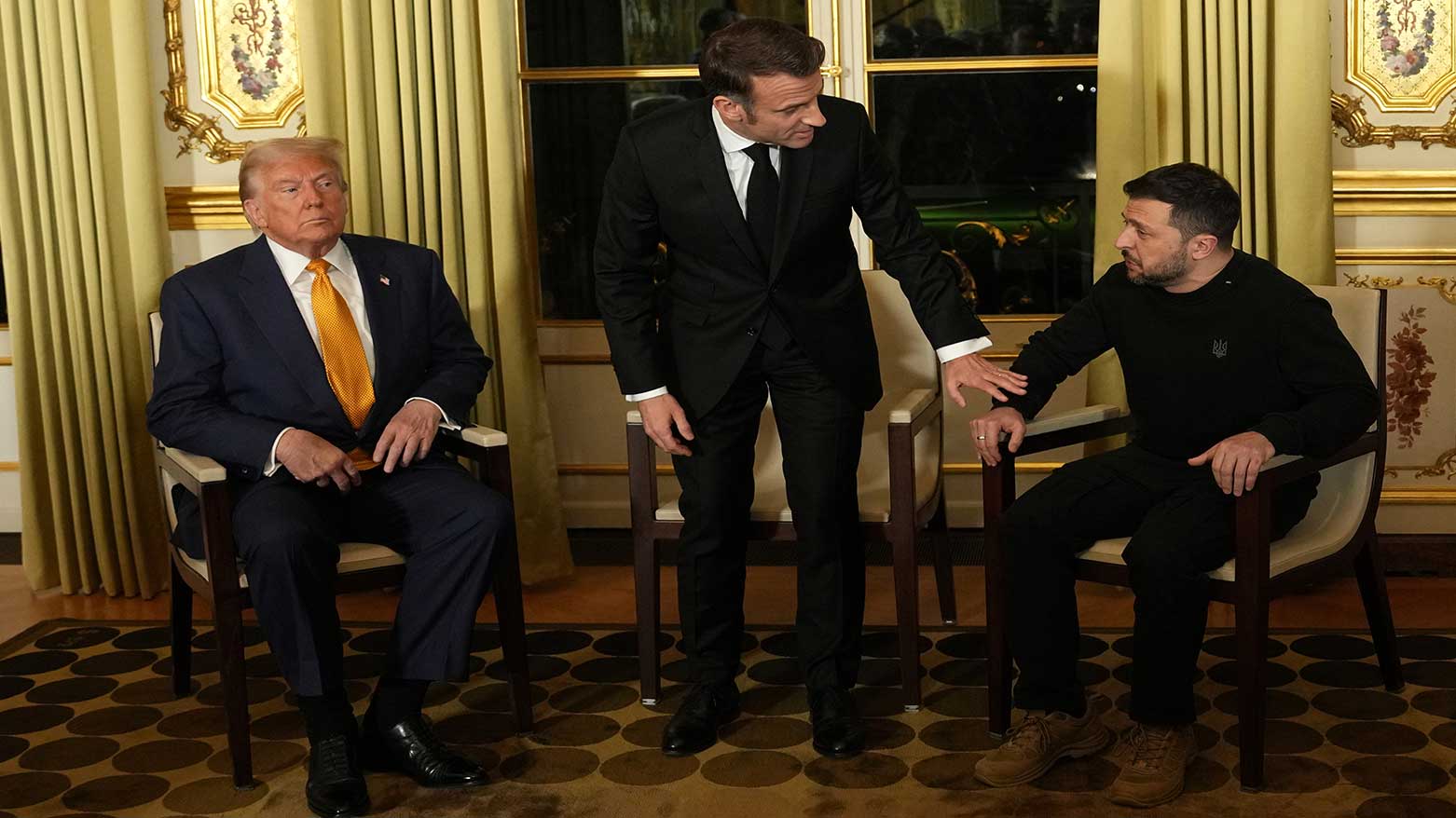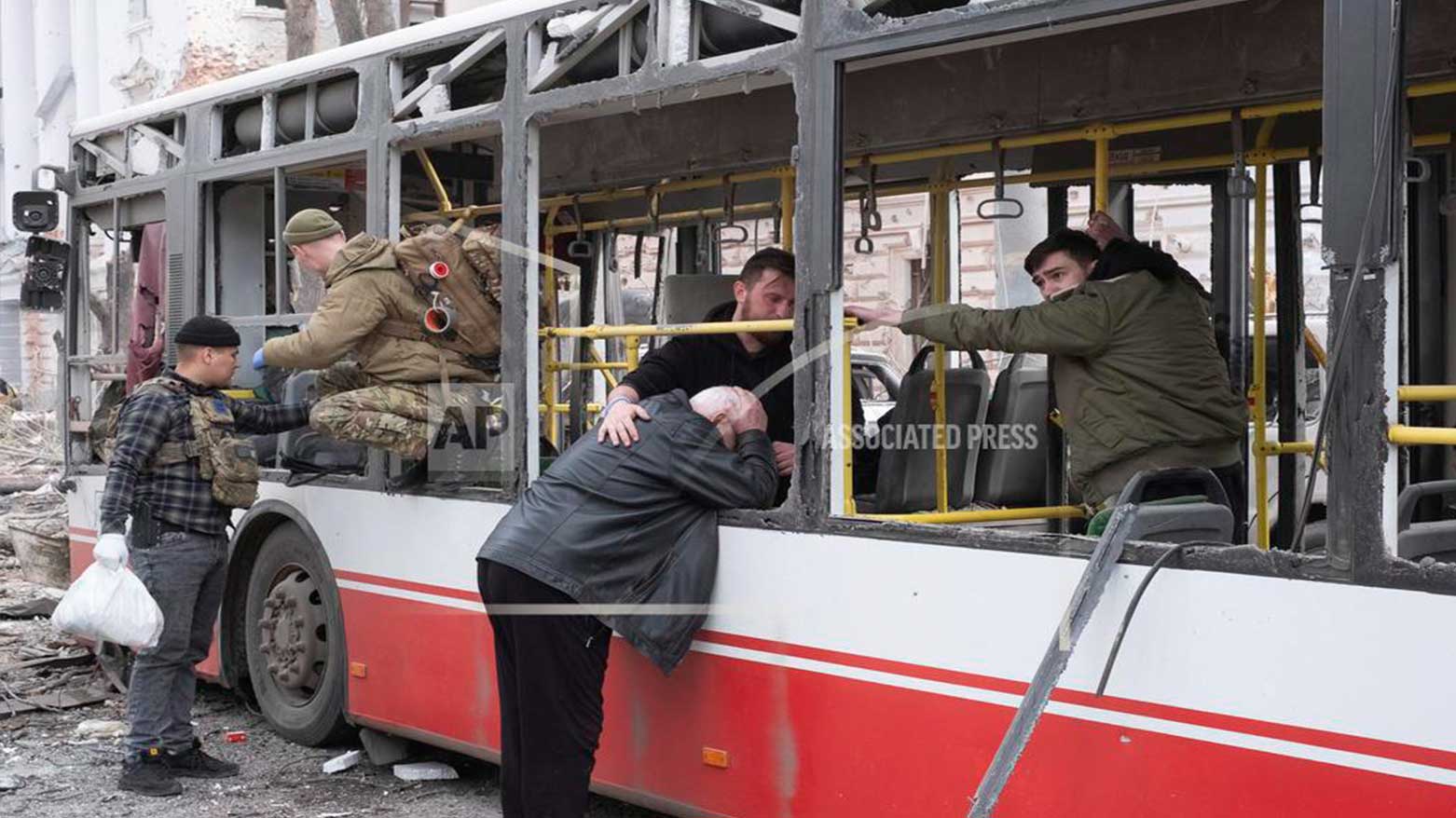Trump Blames Biden for Ukraine War, Urges Ceasefire; Zelenskyy Invites Him to Witness Devastation Firsthand
The urgency of these diplomatic efforts was heightened by Russian ballistic missile strikes on the Ukrainian city center of Sumy, which killed at least 34 people and injured 117, including children.

ERBIL (Kurdistan24) — In a series of high-stakes diplomatic exchanges, U.S. President Donald Trump intensified criticism of his predecessor, Joe Biden, for what he termed as the "avoidable" war in Ukraine, while Ukrainian President Volodymyr Zelenskyy called for justice following a devastating Russian missile attack that killed at least 34 civilians in Sumy.
Speaking in Paris on Sunday, President Trump urged both Russia and Ukraine to halt hostilities and commence negotiations. “There should be an immediate ceasefire and negotiations should begin,” he stated, emphasizing that the war “should never have started, and could go on forever.”
In his remarks, Trump placed the blame for the conflict squarely on President Biden, accusing him of provoking Russia by supporting Ukraine's aspirations to join NATO. “I told Biden that it would all end in war,” Trump said, referring to the Biden administration's approach to Ukraine's NATO membership, which he believes triggered the crisis.
Ukrainian President Volodymyr Zelenskyy, who met with Trump during the Paris visit, responded by underscoring the need for a "just and enduring peace" that cannot be easily undone. He warned that a ceasefire without solid guarantees could be reignited at any moment and stressed that Putin "can only be stopped by strength—the strength of world leaders who can become leaders of peace."
The urgency of these diplomatic efforts was heightened by a Russian missile attack on the Ukrainian city of Sumy during Palm Sunday celebrations, which killed at least 34 people and injured 117, including children. The strikes involved ballistic missiles and reportedly used cluster munitions, targeting a city-center bus and causing mass civilian casualties.

International leaders, including French President Emmanuel Macron and German Chancellor-in-waiting Friedrich Merz, condemned the attack as a serious war crime and called for stronger action to impose a ceasefire.
Amid these developments, the Trump administration has maintained direct talks with Moscow. The Kremlin acknowledged ongoing communications with the U.S., involving ministries and intelligence, but emphasized that rebuilding relations demands time and sustained effort.
As diplomatic efforts continue, the international community watches closely, hoping for a resolution that ensures lasting peace and accountability for the victims of the conflict.